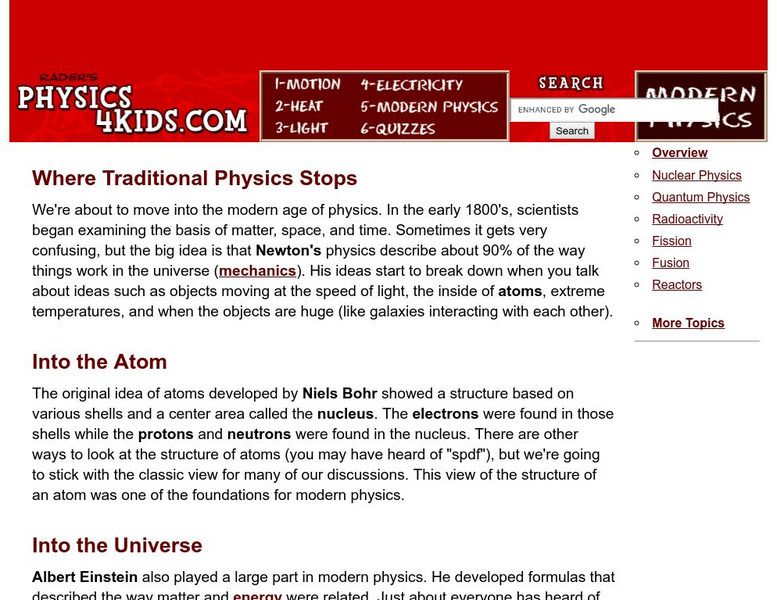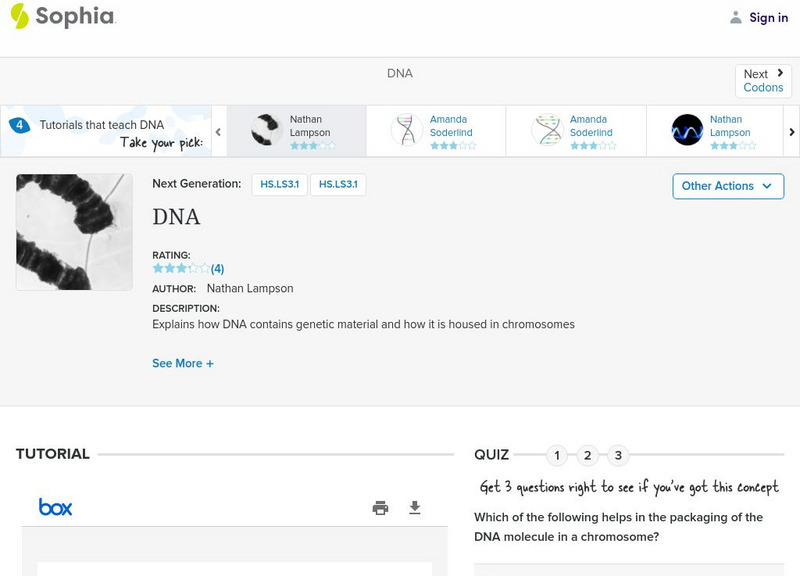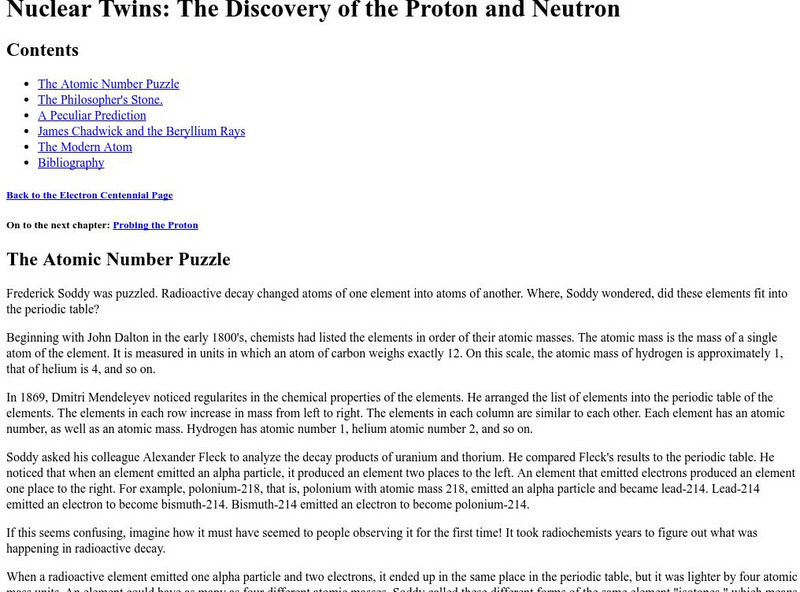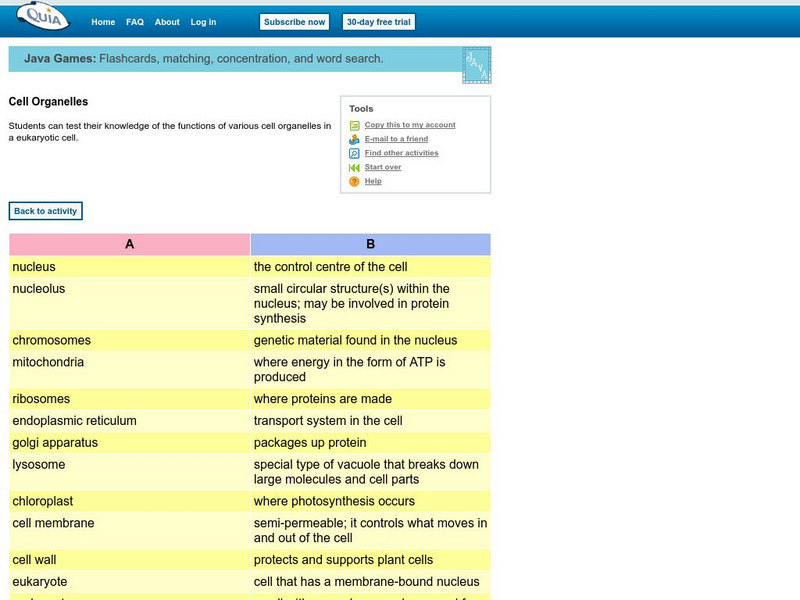Physics4kids
Physics 4 Kids: Where Traditional Physics Stops
We're about to move into the modern age of physics. In the early 1800's, scientists began examining the basis of matter, space, and time. Sometimes it gets very confusing, but the big idea is that Newton's physics describe about 90% of...
Ducksters
Ducksters: Physics for Kids: Elementary Particles Quarks, Bosons, Leptons
Kids learn about elementary particles in the science of physics such as quarks, bosons, fermions, leptons, photons, and gluons.
Sophia Learning
Sophia: Dna: Lesson 4
Explains how DNA contains genetic material and how it is housed in chromosomes. This lesson is 4 of 5 in the series titled "DNA."
My Science Site
Bj's Science: Cells: Teacher Information [Pdf]
Reference information about the study of cells. Includes a chart comparing plant and animal cells and one examining the structure of a cell.
Zero Bio
Zero Bio: Cellular Respiration Game
Make sure you know your facts before playing this game! Concepts of cellular respiration are the focal point of the questions. Get them correct and hit the target, or get them wrong and your arrow will flop.
Other
Footprints Science: Plant and Animal Cells
This site illustrates different parts of a plant and animal cell. The student may then drag and drop labels to the correct cell part.
Science Struck
Science Struck: What Makes Up an Atom?
Describes the structure of an atom and the characteristics of the electrons, neutrons, and protons inside it. Includes some interesting facts about atoms.
BiologyWise
Biology Wise: Plant Cell Organelles
Explains how plant and animal cells are different and describes the organelles in a plant cell.
BiologyWise
Biology Wise: Diagram of Plant Cell and Functions of Its Organelles
Provides a labeled diagram of a plant cell and descriptions of the characteristics and functions of many of its organelles.
BiologyWise
Biology Wise: What Is the Nucleolus?
The characteristics, structure, and functions of the nucleolus are described.
Other
Nuclear Twin: The Discovery of the Proton and Neutron
Trace the history of the discovery of protons and neutrons in this informative site.
Royal Society of Chemistry
Periodic Landscapes: Atomic Radii
This website provides a short but detailed definition of atomic radii. Also shows the atomic radius plotted against atomic number.
Mocomi & Anibrain Digital Technologies
Mocomi: Cell Structure and Function
Explains cell structure and function and describes the parts of a cell.
Curated OER
Unesco: Romania: Dacian Fortresses of the Orastie Mountains
Built in the 1st centuries B.C. and A.D. under Dacian rule, these fortresses show an unusual fusion of military and religious architectural techniques and concepts from the classical world and the late European Iron Age. The six...
Curated OER
The History and Technical Facts of the Atom
This personal page describes the history and technical facts of the atom, including the nucleus, nucleons, the Bohrs atom, the electron, and more.
Curated OER
The History and Technical Facts of the Atom
This personal page describes the history and technical facts of the atom, including the nucleus, nucleons, the Bohrs atom, the electron, and more.
Curated OER
Science Kids: Science Images: Plant Cell Structure Diagram
Learn about the structure of a typical plant cell with this informative diagram. The diagram lists important parts such as the nucleus, cytoplasm, leukoplast, cell wall, chloroplast and ribosomes.
Wikimedia
Wikipedia: Cytoplasm
Wikipedia offers brief but accurate information on cytoplasm, the matter contained within the plasma membrane of a cell.



![Bj's Science: Cells: Teacher Information [Pdf] Handout Bj's Science: Cells: Teacher Information [Pdf] Handout](https://d15y2dacu3jp90.cloudfront.net/images/attachment_defaults/resource/large/FPO-knovation.png)




